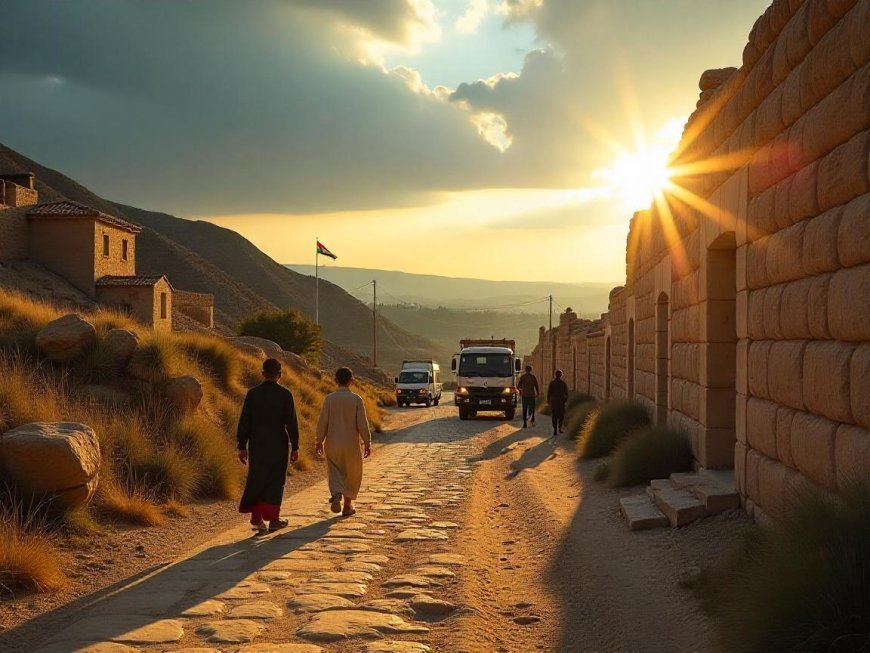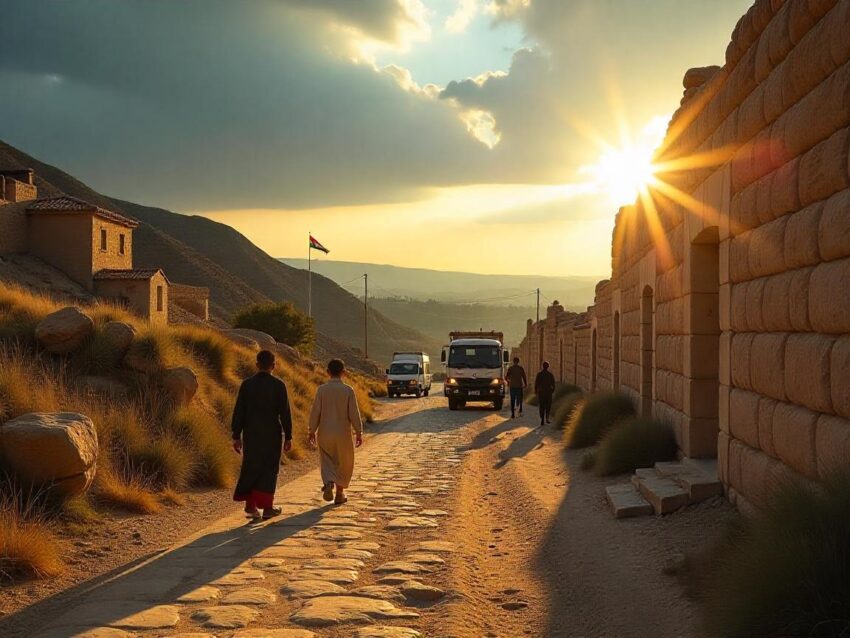Now Unfolding: Syria’s Sweida Ceasefire, A Glimmer Of Hope For Cultural Tourism In A Forgotten Gem


In an era when global travel is leaning more toward the re-blooded rediscovery of the lesser-visited to cultural outposts, this is where the southern province of Sweida in Syria is beginning to appear again in conversation – not just for war, but hidden value and tourist attraction. The recent truce in the Syrian government’s offensive in Southern Syria, a product of Israeli warplanes bombing Damascus, might as well represent something more than a military cooling. For those in the travel and tourism business it brings a glimmer of hope: could this be the start of Sweida’s long road to return to the world’s travel map?
A Region Of Untouched Historical Richness
Eclipsed by some of Syria’s larger, more famous archaeological sites, such as Palmyra and Aleppo, Sweida (also spelled As-Suwayda) has its own trove of history and culture to offer. Sweida lies in a mountainous area near the Jordanian border, where Roman ruins, early Christian monasteries and the long-standing customs of the Druze minority have remained intact, in one of the Middle East’s most inscrutable and close-knit religious communities.
The old city’s stone-paved streets were once walked by visitors who remembered the ancient temples and amphitheaters tucked amid vineyards and orchards. The Temple of Dionysus, for example, is a beautiful vestige of the province’s Hellenistic history. With its moderate climate and volcanic hills, the calm of rural Sweida used to make it an appealing escape for people seeking history and tranquillity, party officials say.
Cultural Tourism In Crisis
Unfortunately, for more than ten years, there has been little to no tourism in Syria. Years of conflict have crippled infrastructure, sent local artisans and guides packing, and transformed historic quarters into no-go areas. The upsurge of sectarian violence in Sweida in recent months was a grim reminder that tourism can never thrive in the absence of security.
This most recent ceasefire, though fragile, is significant. It represents not only a push for local autonomy and less militarization, but also a possible opening to establish civil life in Sweida once again. Religious leaders have emerged as intermediaries, pushing peace over partisanship — an approach that augurs well for those who dream of resurrecting an economy built on tourism tied to cultural respect and preservation.
Opportunities In Responsible Tourism
For travel agents, NGOs, or adventurous backpackers who are seeking the next big thing, Sweida represents a bankable opportunity. The province is a patchwork of Druze tradition, alive in its distinctive dress, food and oral ways. Such purity is hard to find in a global travel market that is overcrowded with commoditized encounters.
There is also space to innovate community-driven tourism. By engaging with local residents, particularly Druze women, who are often talented in traditional crafts, embroidery, storytelling, Sweida can set itself up as a model for sustainable cultural tourism in the post-conflict Middle East.
Adventure tourism may also fit here. With its volcanic plateaus, deep valleys and peaceful farms, Sweida (pronounced sweye-DAH) allows for hiking, horseback riding, agritourism — and all with little ecological impact.
The Caveats Of Cautious Optimism
Yet, challenges remain. Nonetheless, the travel advisories from most Western governments continue to warn against non-essential travel to Syria. There are major holes in infrastructure — hotels, roads, internet access — that would require significant work. And, most importantly, there must be no ceasefire.
Israel’s threat to escalate even more if Syrian troops do not completely pull out from the province is a stark reminder of how the region teeters. And accusations of looting and abuse by Syrian forces in recent weeks have cast doubt on how safe it is to travel in fact.
And if peace in Sweida holds, even if only temporarily, it could potentially pave the way for soft cultural diplomacy via tourism. Pilgrimages, academic exchange programs and environmentally controlled eco-tours might be the first step to reintroduce Sweida to the world.
What’s Next: The Road To Healing As A Destination For Tourism
In post-conflict places, tourism is more than a way of sightseeing; it’s an avenue of reconciliation and economic resurgence. For Sweida, with its proud history and long-embedded cultural identity, reopening its gates to the world could restore not just damaged roads and buildings but the spirit of its people as well.
There’s a lesson, as well, in resilience. The people of Sweida have clung to their traditions through war and uncertainty. They have protected their sacred sites, and kept their festivals alive at home, while they wait for the world to start seeing them again.
With well-judged reconstruction, international help and a set resolution towards peace, Sweida, one day, may serve as a beacon, not just of survival, but of revival.
The post Now Unfolding: Syria’s Sweida Ceasefire, A Glimmer Of Hope For Cultural Tourism In A Forgotten Gem appeared first on Travel And Tour World.






